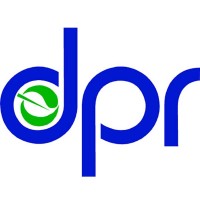Pesticide Use Reporting – 2019 Summary Data
Text files for all Annual Report tables and figures are available for download.
DPR’s Pesticide Use Annual Report includes both short-term and long-term pesticide use trends. Use changes from one year to the next reflect short-term variability in pesticide use. Pesticide use is dependent on many factors that can vary unpredictably year over year, including drought conditions, weather, crop selection and other variables. DPR monitors pesticide use data for longer-term trends to inform actions to mitigate potential impacts to human health and the environment and to inform California’s transition to safer, more sustainable pest management. The table below highlights the 10-year trend line between 2010 and 2019 reflecting increased use of safer, more sustainable lower-toxicity pesticides such as biopesticides and oils (listed at the top of the table with green text) and decreased use in the other use categories (listed in red text).
2019 Statewide Report
Pesticide Use Annual Reports
Statewide Data Tables
Pesticide Use Report Lists
Pesticide use is summarized by the pounds applied, agricultural applications, and cumulative acres treated. Tables are organized by chemical, commodity (site), or by both.
Pesticide Category Lists
Pesticide use is summarized by total pounds applied or by cumulative acres treated for eight different pesticide categories over ten years: reproductive toxicity, carcinogens, cholinesterase inhibitors, groundwater contaminants, toxic air contaminants, fumigants, oils, and biopesticides.
Pounds Applied:
Cumulative Acres Treated:
Top 100 Lists
The top 100 commodities (sites) or chemicals, ranked by the total pounds applied or cumulative acres treated.
County Data Tables
Top Five Lists for Each County
The top five commodities (sites) or chemicals are listed for each county, ranked by total pounds applied or by cumulative acres treated. Tables are organized by chemical, commodity (site), or by both.
County Totals
2019 County Summary Reports:
Indexed by Commodity:
Indexed by Chemical:
Sign Up for Email Updates
Keep in the loop by subscribing to one or more of our email distribution lists.
*= Required Field
Still have a Question or Need More Information?
Please contact us with questions or visit the Contact Us page on our website to connect with other programs at DPR.
Email: PUR.inquiry@cdpr.ca.gov
